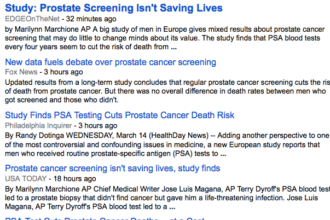If I had to guess who is likely to benefit from the placebo effect of an analgesic drug it would somebody who is easily suggestible, probably having a “weak personality” profile, deferring to opinions of others, not holding strong opinions, shunning controversy. I polled 11 people, and they all came up with descriptors such as “follower”, “weak”, “suggestible”. Makes intuitive sense, right?
If I had to guess who is likely to benefit from the placebo effect of an analgesic drug it would somebody who is easily suggestible, probably having a “weak personality” profile, deferring to opinions of others, not holding strong opinions, shunning controversy. I polled 11 people, and they all came up with descriptors such as “follower”, “weak”, “suggestible”. Makes intuitive sense, right?
First, let’s make clear what is meant by placebo. As far as the physician/investigator is concerned it’s simple: it is an inert substance. So if you administer a saline solution as the placebo in a cancer drug trial (rest assured, it’s not done because of ethical considerations), there is little or no placebo effect. But what if a drug to control pain (an analgesic) is being tested? Then the inert substance is not the whole story –the presentation of the drug, the rituals associated with taking a drug (“take the drug with meals”, “do not use alcohol with the drug”), psychological factors (patients suffering from chronic pain willing to try anything), social attitudes (respect and trust in your doctor), all influence the perception of efficacy of an inert substance. In other words, the placebo is the inert substance in context, and the patient’s social and psychological backgrounds are of paramount importance in this respect.
A paper in Neuropsychopharmacology (Nov.15, 2012) attempts to understand the relation between analgesia placebo and personality traits. Zubieta and his colleagues from the University of Michigan assessed the personality traits of 47 healthy volunteers. Then they asked each volunteer to lie in a positron emission tomography (PET) scanner for the duration of a standard pain challenge. First, painless isotonic saline was injected into the jaw muscle and, 20 minutes later, a pain-inducing hypotonic injection. Volunteers were told about these two conditions but not the order in which they would occur, allowing for expectation of pain in both conditions. The conditions were then repeated for another scan session but this time the volunteers were given a placebo consisting of intravenous infusions of isotonic saline every 4 minutes, which they were told would reduce pain.
The PET scan recorded the activation of endogenous mu-opioid (pronounced MEW-opioid) receptors in the brain, and blood samples were taken every 10 minutes to measure placebo-induced changes in the stress hormone cortisol. Meanwhile, the volunteers were also asked to rate the intensity of the pain they felt every 15 seconds.
The results of the PET scans were not surprising. The areas that are associated with reward and secretion of dopamine, such as the nucleus accumbens, showed intense activity. But when the investigators tested whether the expectation of pain relief was correlated with the placebo effect, they found none.
But they also found that people with certain personality traits—specifically, those who scored high on resiliency, altruism, and straightforwardness, and low on measures of “angry hostility”—were more likely to experience a placebo-induced painkilling response. Importantly, such individuals also had decreased cortisol levels and greater activation of endogenous mu-opioid receptors in brain regions associated with reward and activated by dopamine.
For once, the “good guys” come out on top. The placebo effect is not only “in your head”, implying that it is worthless. The reward system activation elevates mood, enhances feelings of well-being and reduces anxiety, and even has a positive effect on the immune response and thus reduces susceptibility to disease. But just wishing for an effect, however vehemently, doesn’t cut it; wishful thinking gets you nothing but disappointment. But a positive personality, hopeful, resilient and altruistic, reaps all the benefits.







